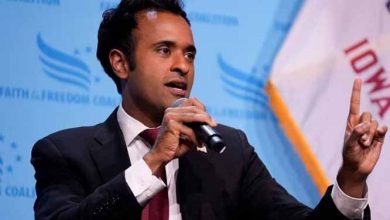Philippine nurses battle Covid, resignations

Manila, Sep 18 (AFP):
Exhausted nurses in the Philippines are struggling to care for patients as colleagues contract Covid-19 or quit a profession that was dangerously understaffed even before the pandemic.
The country is enduring a record rise in infections, fuelled by the Delta variant, with the health department reporting a nursing shortfall of more than 100,000 — forcing those left to work long hours for little pay on often precarious short-term contracts. “They are tired and burned out,” nursing director Lourdes Banaga, at a private hospital south of Manila, told AFP. “At the start of the pandemic we had almost 200 nurses,” said Banaga, director for nursing services at the Lipa Medix Medical Center in Batangas province. “By September that will reduce to 63.” Official figures show 75,000 nurses are working in public and private Philippine hospitals but roughly 109,000 more are needed.
The pandemic has exacerbated a pre-existing lack of nurses, said Maristela Abenojar, president of Filipino Nurses United — a situation she describes as “ironic” in one of the world’s biggest exporters of healthcare workers. The “chronic understaffing” is down to inadequate salaries, she said. An entry-level nurse in a public hospital can earn 33,575 pesos ($670) per month, official data show.
But Abenojar said most were on short-term contracts, earning 22,000 pesos with no benefits such as hazard pay. Meanwhile, those in the private sector were making as little as 8,000 pesos. And many have had enough: About 40 percent of private hospital nurses have resigned since the start of the pandemic, according to the Private Hospitals Association of the Philippines.
More than 5,000 nurses have been given the green light to go abroad this year after a Covid-19 ban was replaced with a cap to ensure enough nurses were available in the Philippines. It hasn’t worked. “We can’t get additional nurses, we can’t compel them to apply,” said Jose Rene de Grano of the private hospitals association. In recent weeks, health workers have protested over unpaid benefits, including a coronavirus special risk allowance. Abenojar said many were still waiting.
President Rodrigo Duterte has asked for patience while the government tries to come up with the money. “We don’t feel cared for,” said Melbert Reyes of the Philippine Nurses Association.
Many hospitals boosted their bed capacity after a virus surge earlier this year threatened to overwhelm them. Official data show coronavirus ward and ICU bed occupancy rates at more than 70 percent nationwide as daily cases often exceed 20,000, fuelled by the hyper-contagious Delta variant.
A public hospital in Binan city, near Manila, turned a car park into a ward. “Many of our nurses are sick and in quarantine,” medical director Melbril Alonte told AFP.
“We feel exhausted… but we always keep in mind that we have to help our people because… no one else will.”
But due to the nursing shortfall, some facilities — like the Lipa Medix Medical Center — have had to slash their bed capacity, and extend their nurses’ shifts. Nurse Trixia Bautista said she works up to 15 hours per shift looking after mostly severe Covid-19 patients at a public referral hospital in the capital.








